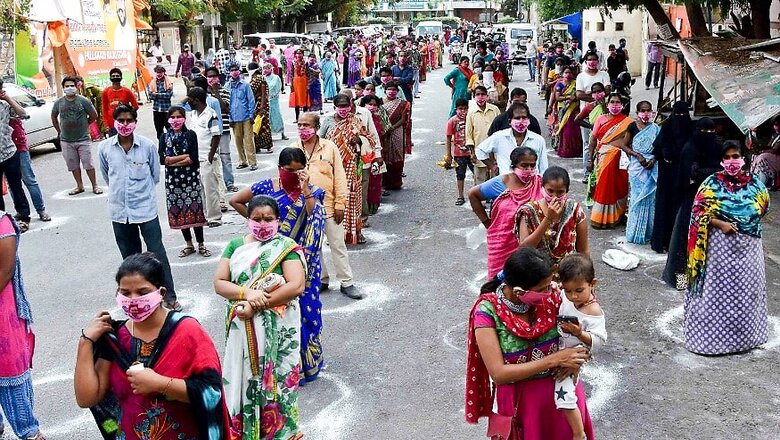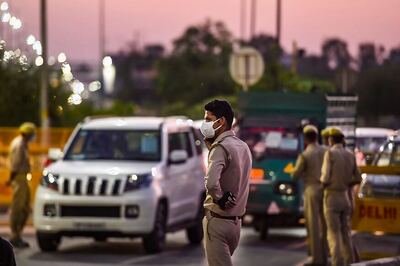
views
New Delhi: The national lockdown has been imposed for almost 40 days now and the country has moved towards graded relaxations based on colour-coded zones. Even as the lockdown has slowed down the rate of transmission, the number of active cases recorded each day remained steady throughout the lockdown and is, in fact, rising. In just the past five days, 11,266 new cases have been reported, taking the tally of total cases to 42,386 cases. As the government bought time to ramp up medical facilities, did it also use the time to study the prevalence of the infection in communities?
Senior virologists and epidemiologists News18.com spoke to said that the lockdown was not utilised well enough to do such studies that could give a fair idea on the prevalence of the infection in the community. Some even said that there was a total failure on this front.
One of the reasons for this failure was the rapid antibody test kits fiasco that brought plans of doing surveillance with the kits to a screeching halt. Senior officials from Indian Council of Medical Research (ICMR) confirmed to News18.com that until rapid kits are procured again, surveillance studies to check for the prevalence of the infection cannot move ahead.
Veteran virologist Dr T Jacob John said the focus has to shift to identify suspected cases rather than spending too much time on tracing each contact. “It does not make sense to divert all energies on contact tracing. Now is the time to use testing kits for diagnostic tests, ask doctors to identify suspected Covid-19 cases and test them. Because it is spreading in the community, in clusters, in hospitals, so chasing the contacts must be ramped down and they should ramp up diagnostic tests based on clinical Covid diagnosis by doctors.”
Dr Iype Joseph, epidemiologist, Rajiv Gandhi Centre for Biotechnology, Trivandrum, said that at this juncture when those who have come from abroad have already been quarantined, spending time on contact tracing might not yield much. “It should not be sidelined totally but contact tracing should not be the sole focus. In the current phase, we don’t know exactly who has transmitted the virus compared to earlier phases when people were coming back from abroad. If a person tests positive it is safe to assume that the person has contracted the virus from a specific area, and the focus should shift to that area,” Joseph said.
Dr Tanmay Mahapatra, an epidemiologist who works as team lead for CARE India in Bihar, said that the government totally failed as far as carrying out any surveillance studies during the lockdown was concerned. “A nationwide surveillance was required for understanding asymptomatic infections. This could have been done through sample studies. We should have had a dependable study on the estimated burden of the disease with regards to asymptomatic people. This should have been done parallel to contact tracing,” Mahapatra said.
As far as surveillance of infections is concerned, the ICMR carried out one sentinel surveillance to check the prevalence of Covid-19 infection among those who had severe acute respiratory illness (SARI). In early April, ICMR had published its assessment in Indian Journal of Medical Research and found that out of 5,911 people with SARI cases, 104 tested positive and 40 among them did not have any history of foreign travel or contact with a Covid-19 positive case, thus hinting at signs of community transmission. These 104 cases were reported from 52 districts in 20 states and union territories.


















Comments
0 comment